Why In-Home Care Is a Valuable Resource for Family Caregivers
Transforming Family Caregiving with In-Home Support

The Critical Role of In-Home Care in Family Support Systems
As the population ages and healthcare needs become increasingly complex, in-home care emerges as an essential resource that enhances quality of life for seniors and eases the burden on family caregivers. Offering personalized, comprehensive support within the familiar environment of one's home, these services enable seniors to maintain independence while providing family members with vital respite and resources. This article explores the multifaceted benefits, critical roles, and strategic importance of in-home care in supporting both seniors and their caregivers.
The Benefits of In-Home Care for Seniors and Family Caregivers
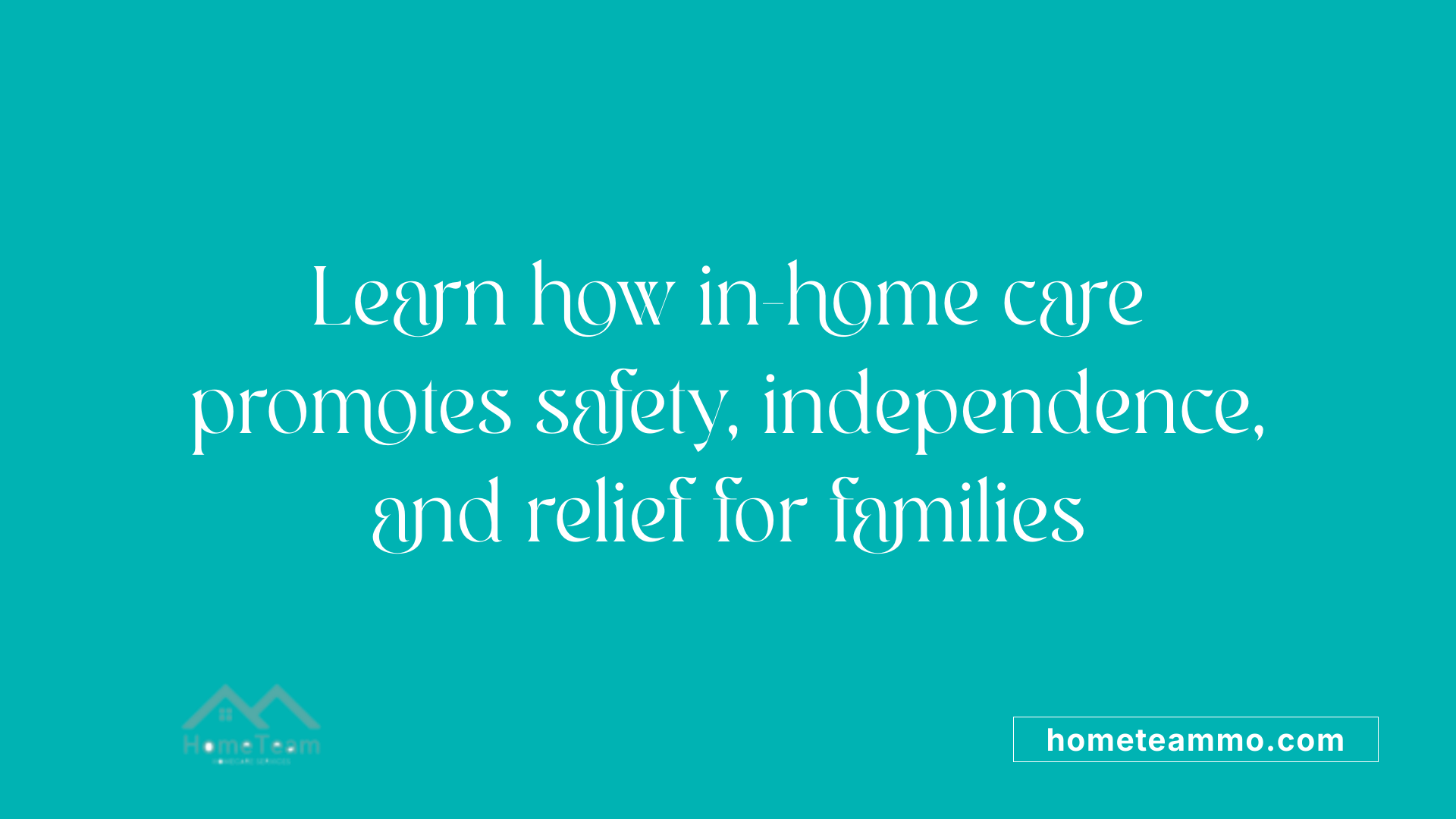
What are the benefits of in-home care for seniors and family caregivers?
In-home care offers substantial advantages for both seniors and their family caregivers. For older adults, it delivers personalized support tailored to individual needs, helping them manage daily activities such as bathing, dressing, meal preparation, and medication management. This personalized approach promotes safety and independence, enabling seniors to stay in a familiar environment while maintaining control over their routines.
Furthermore, in-home care supports quicker recovery from injuries or illnesses, reducing the likelihood of hospital readmissions and enabling seniors to heal comfortably at home. The availability of skilled caregivers ensures continuous health monitoring, catching health changes early and preventing complications.
For family caregivers, in-home care provides essential relief from the demanding responsibilities of caregiving. It offers emotional support and access to resources that help prevent burnout and safeguard their health and well-being. Services like companionship help combat loneliness among seniors and enhance their mental health.
Cost-wise, in-home care can be more affordable than assisted living facilities, with median hourly costs around $30, depending on location and care needs. It also alleviates pressure on strained healthcare systems by reducing hospital visits and emergency room trips.
Overall, investing in in-home care sustains better health outcomes for seniors, fosters stronger family bonds, and conserves healthcare resources, making it a comprehensive solution for aging with dignity while supporting caregivers.
Supporting Health and Wellbeing Through Personalized Care
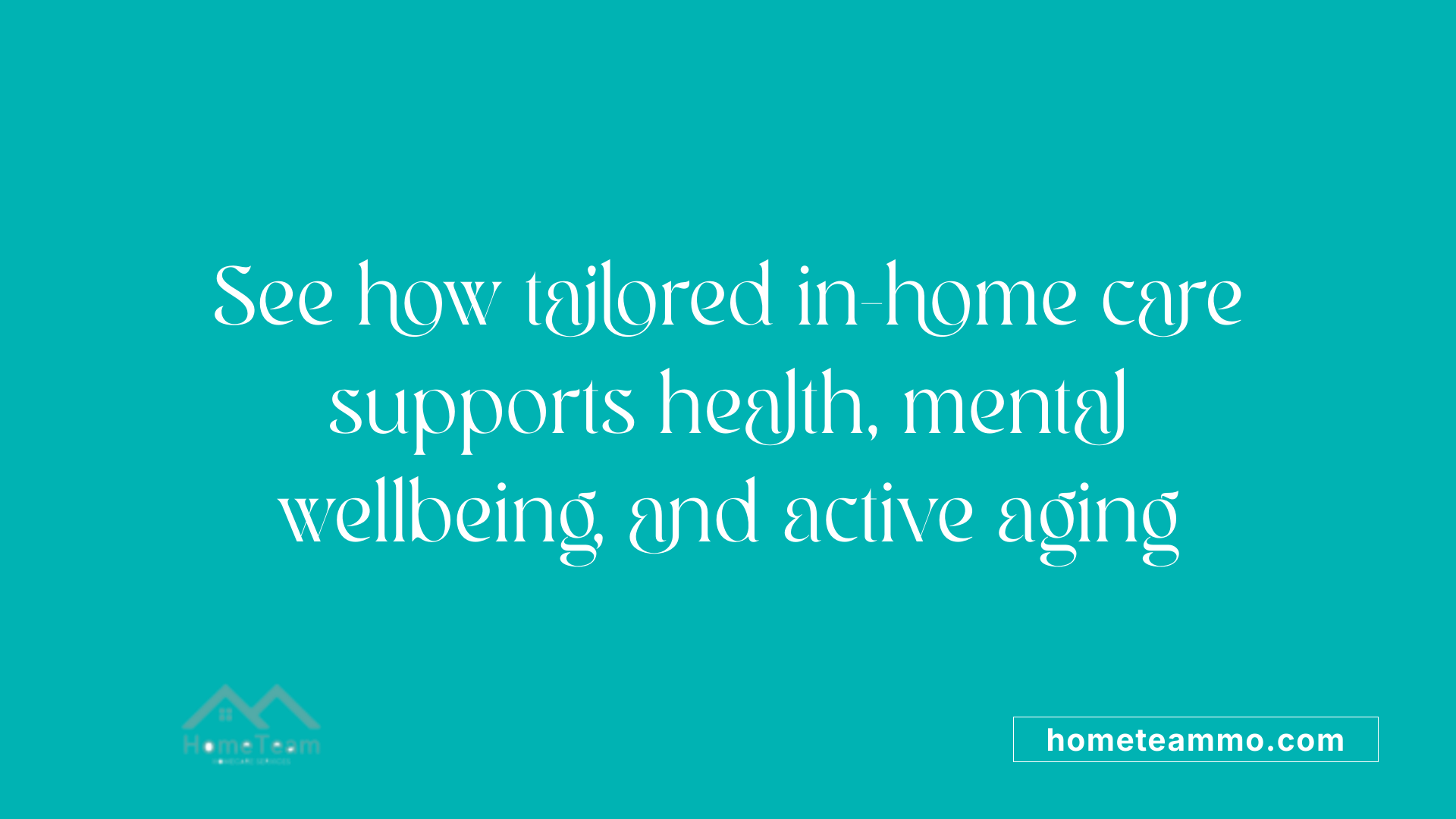
How does in-home care support the health and wellbeing of seniors and caregivers?
In-home care plays a vital role in enhancing the health of seniors by providing tailored assistance with critical activities such as medication management, preparing nutritious meals, personal hygiene, and facilitating physical and mental exercises. This comprehensive support helps seniors maintain their mobility, promote better health outcomes, and sustain their independence while living comfortably at home.
For caregivers, professional in-home services offer crucial relief from the physically and emotionally demanding responsibilities of daily care. Respite care allows family members to rest, reducing the risks of burnout, stress, and anxiety. This break supports their overall mental health and enables them to continue caring effectively.
Moreover, in-home care encourages social interactions that combat loneliness, thwart cognitive decline, and reduce feelings of depression. Regular engagement with caregivers or social activities introduced by home health professionals fosters mental acuity and emotional stability.
The holistic approach of personalized home care benefits both the body and mind. It promotes a healthier lifestyle, supports emotional security, and enhances quality of life for seniors, while also safeguarding the wellbeing of family caregivers. As a result, in-home care nurtures healthier, more active aging processes tailored to each individual's unique needs.
The Pivotal Role of Professional Caregivers in Enhancing In-Home Support
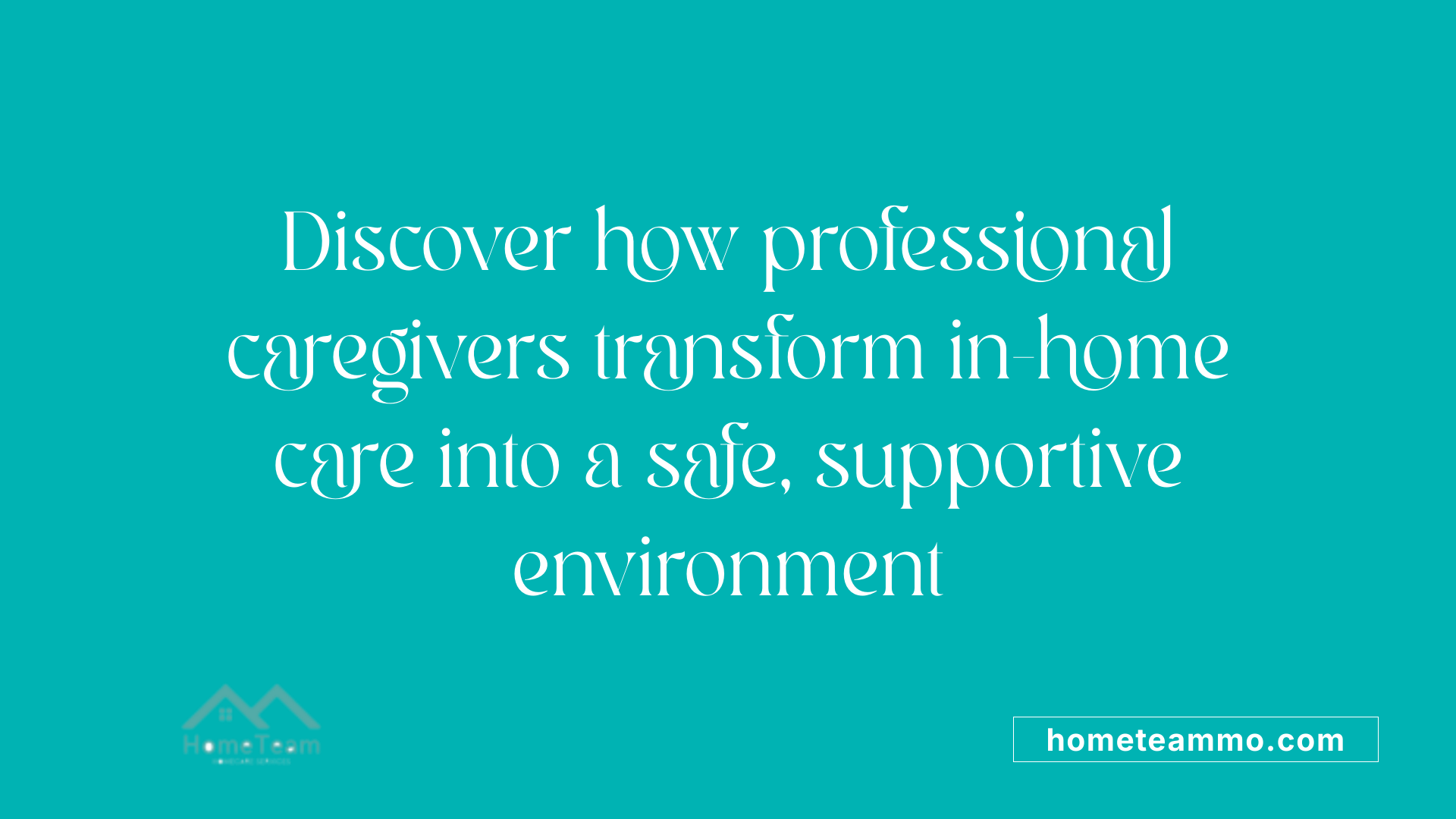
What role do professional caregivers play in enhancing the in-home caregiving experience?
Professional caregivers are essential in transforming in-home care into a safe, supportive, and effective environment. They offer comprehensive medical and practical support, helping individuals maintain their independence while ensuring safety. These trained specialists assist with daily routines such as bathing, dressing, and preparing meals, alongside managing medications and supporting mobility.
Beyond practical tasks, caregivers provide emotional companionship, reducing loneliness and fostering mental well-being. Their presence creates a sense of security, empowering clients to engage in social activities and hobbies that enhance quality of life.
Monitoring health status is another critical aspect of their role. Caregivers observe subtle changes in health conditions, alert families or healthcare teams to potential concerns, and help in adjusting care plans accordingly. This proactive approach prevents complications and supports recovery from illness or injury.
Creating a safe environment is paramount. Caregivers implement safety protocols and home modifications—such as grab bars and non-slip mats—to minimize risks. They also uphold safety standards through regular supervision and adherence to care protocols.
Supporting family caregivers is also a vital part of their job. Professional caregivers offer respite care, which helps prevent burnout among family members. They also provide training and guidance on safe handling, medication management, and care techniques, fostering collaboration and confidence.
In sum, professional caregivers augment the in-home caregiving experience by ensuring safety, promoting independence, offering emotional support, and efficiently managing health needs. Their role is integral to enabling individuals to live comfortably and securely at home, while also supporting family caregivers who play a crucial part in ongoing care.
Practical Assistance and Resources in In-Home Care
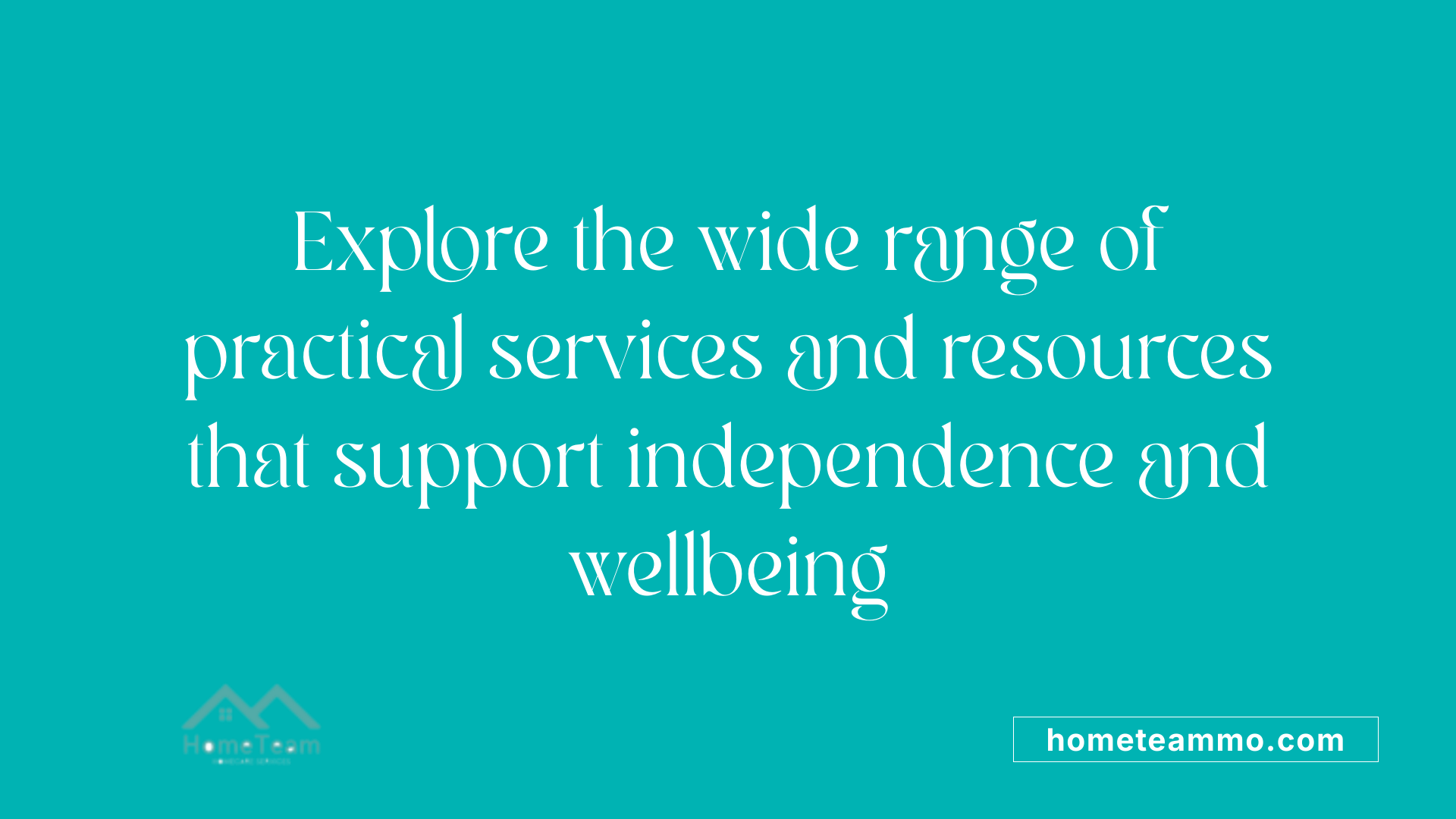
What practical assistance and resources can in-home care services provide to support caregiving?
In-home care services play a vital role in supporting both individuals with health challenges and their family caregivers by offering a wide range of practical assistance. They help with daily activities such as bathing, dressing, mobility, and personal hygiene, which are essential for maintaining independence and dignity.
Aside from personal care, in-home caregivers assist with household chores including cleaning, laundry, grocery shopping, and meal preparation. They also provide transportation services for medical appointments, social activities, and errands, ensuring clients stay engaged and connected to their communities.
Health-specific support is another critical aspect. These services can include skilled nursing, physical therapy, occupational therapy, speech therapy, and medication management, all tailored to meet personalized health needs. This medical assistance helps with recovery, managing chronic conditions, or providing end-of-life care.
Support for caregivers is equally important. Respite care gives family caregivers a much-needed break, helping to prevent burnout. Educational programs offered by agencies equip caregivers with practical skills, such as safe handling, medication safety, and emergency response.
Community resources further bolster care at home. Meal delivery services, transportation programs, and social support groups foster community involvement and reduce feelings of isolation.
For individuals with complex needs, specialized care services—including wound care, advanced medication regimens, or palliative care—ensure safety and comfort while maintaining quality of life.
By integrating these services, in-home care ensures a safer, healthier, and more comfortable living environment. It helps sustain independence, promotes overall well-being, and alleviates the emotional and physical burden on family caregivers.
| Service Type | Assistance Provided | Additional Details |
|---|---|---|
| Personal Care | Bathing, dressing, mobility | Supports dignity and independence |
| Household Help | Cleaning, laundry, shopping | Maintains a clean, safe environment |
| Medical Support | Nursing, therapies, medication management | Ensures proper health monitoring |
| Transportation | Medical visits, errands | Keeps clients socially engaged |
| Caregiver Support | Respite, education | Prevents burnout, enhances skills |
| Specialized Care | Wound care, end-of-life | Meets complex health needs |
This comprehensive support system helps older adults and individuals with disabilities continue living independently while reducing the stress and burden on their caregivers.
The Importance of Self-Care for Family Caregivers
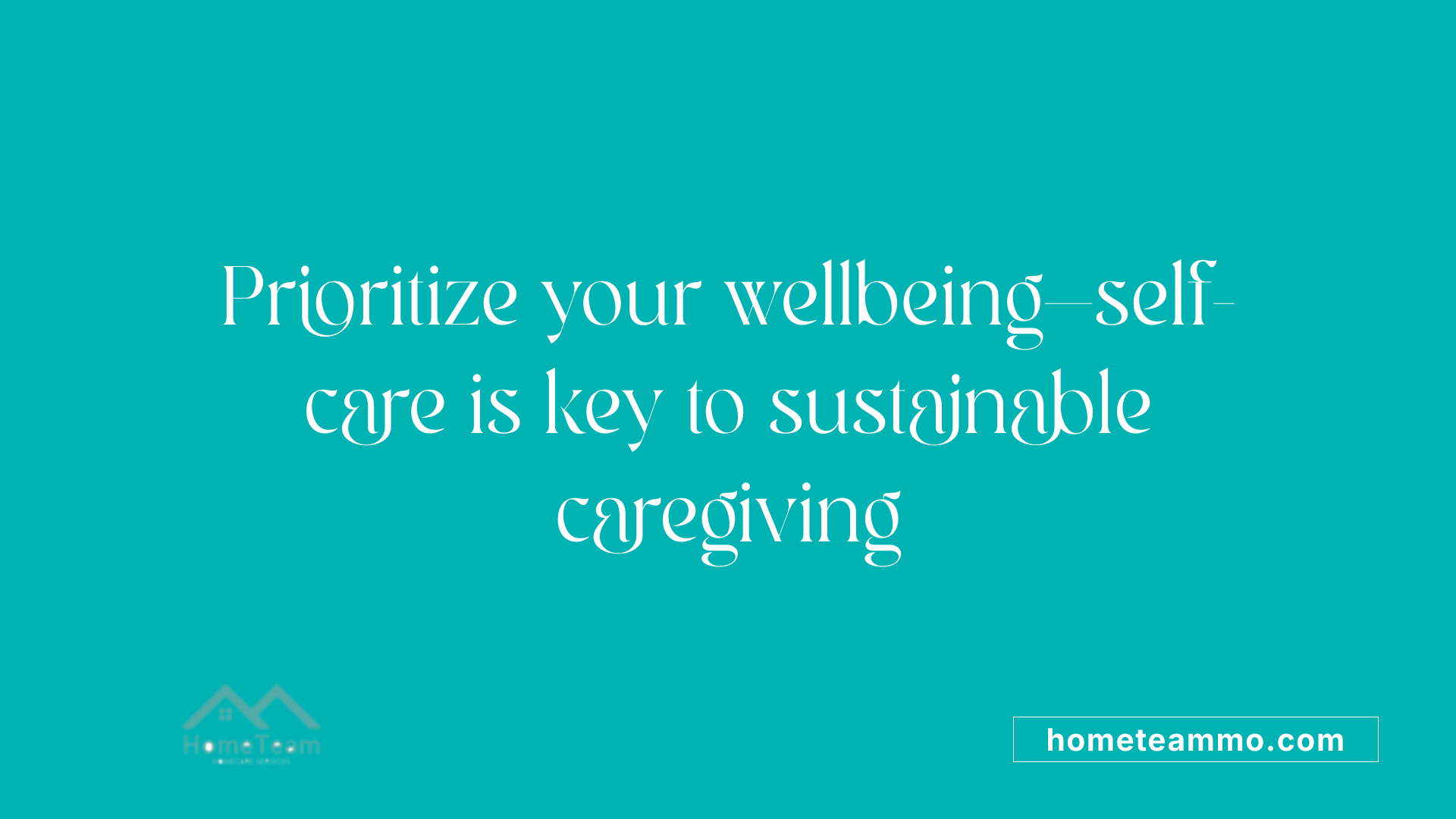
Why is self-care crucial for family caregivers?
Self-care is a vital aspect of effective caregiving because it protects the physical and mental health of those in the role. Family caregivers often put the needs of their loved ones before their own, which can lead to burnout, exhaustion, and a decline in overall wellbeing.
Engaging regularly in activities like maintaining a balanced diet, ensuring adequate sleep, exercising, and practicing relaxation techniques helps reduce stress and build resilience. Support networks, such as local community groups and national organizations like the Family Caregiver Alliance or AARP Caregiving Resource Center, provide valuable emotional and informational assistance, further safeguarding mental health.
Neglecting self-care can lead to serious health issues, including high blood pressure, depression, and weakened immune function. It can also increase feelings of social isolation and anxiety, which diminish a caregiver’s capacity to care effectively.
Prioritizing self-care fosters self-compassion and emotional stability, enabling caregivers to sustain their role over the long term. It helps maintain energy levels and emotional clarity, which are essential for handling unexpected challenges.
Ultimately, caring for oneself ensures better health, happiness, and effectiveness in supporting loved ones. Caregivers who practice self-care are better equipped to provide compassionate, consistent care while also enjoying their personal lives.
Empowering Caregivers and Enriching Lives Through In-Home Support
In-home care stands as a cornerstone of effective family caregiving, bridging the gap between medical needs and emotional support in a familiar environment. It bolsters the health, safety, and independence of seniors while alleviating stress and physical demands on family caregivers. Harnessing the resources, professional expertise, and personalized approach of in-home care not only enhances life quality for care recipients but also fosters more resilient, less strained caregiving families. As healthcare evolves, recognizing the integral role of in-home care will be pivotal in building sustainable, compassionate support systems that serve both seniors and their loved ones every step of the way.
References
- Caregivers Corner: The benefits of in-home care: a path to ... - ABC11
- Family Caregivers in Home Care - Adoration Home Health & Hospice
- 6 Benefits of Home Care and Home Health Care Services
- Supporting Family Caregivers in Providing Care - NCBI
- In-Home Caregiving: A Guide for Family Caregivers
- What are the benefits of home care and skilled caregivers?
- An untapped resource: How family caregivers provide value for ...
- How Does Home Care Support Family Caregivers? - Visiting Angels
- Senior Care Resources for Family Caregivers - Salus Homecare
- Benefits of Home Health Care - Amedisys

How to Address Common Challenges in Caregiving Relationships

Addressing Caregiver Burnout with Respite Care

How to Create a Comfortable and Safe Home Environment for Caregiving

How to Create a Safe Environment for In-Home Care

How Home Team Supports Caregivers with Training and Resources

